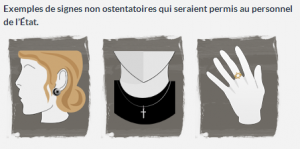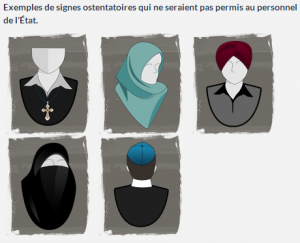 TRAVIS WEAGANT
TRAVIS WEAGANT
<Editor-in-Chief>
Last year, I wrote an editorial after Québec’s provincial election, and claimed that there was no reason to fear Pauline Marois’ Parti Québécois government. Being a minority government taking power at a time when fiscal realities force difficult decisions about taxation and spending, the PQ was hobbled by their lack of power in the legislature and by the empty treasury. Their more controversial (read: sovereigntist) agenda was dead in the water. I maintain that these things are true: sovereignty is off the table, and there is still no money to spend.
 On the other hand, I appear to have underestimated the resourcefulness of some politicians when they are backed into a corner. I don’t happen to believe that every politician on the planet is as cynical as Mme. Marois, but her party’s capacity for calculated opportunism nearly killed my optimistic outlook.
On the other hand, I appear to have underestimated the resourcefulness of some politicians when they are backed into a corner. I don’t happen to believe that every politician on the planet is as cynical as Mme. Marois, but her party’s capacity for calculated opportunism nearly killed my optimistic outlook.
Let me begin by saying that, unlike many Canadians, I don’t reject the PQ, their counterparts the Bloc Québécois, or other sovereigntists out of hand simply because of a separatist agenda. I find the knee-jerk talking points about “destroying this great country” and the amateur cultural psychoanalysis that points to some supposed bitterness stemming from the French army’s defeat at the Battle of the Plains of Abraham in 1759 (which occurred so long ago that France was still ruled by a man called Louis) to be disappointing and deliberately devoid of intellectual effort.
I have also been thus far unsuccessful in locating the source of the a priori assumption that a sovereign Québec would be “unable to survive on its own.” Incidentally, Québec’s largest trading partner is the United States, and the province conducts more trade with Americans than it does with other Canadians. The United Kingdom, France, and Italy each export less to the US than Québec does.
 Furthermore, there is a sizeable contingent of anglophone Canadians that are hostile to the very mention of our francophone province or its inhabitants purely because of their mother tongue and its perceived “infiltration” into the rest of Canadian society, or because of the political views of a certain subset of that province’s population, be they sovereigntist, socialist, or both. Is it any wonder that there are some who want out?
Furthermore, there is a sizeable contingent of anglophone Canadians that are hostile to the very mention of our francophone province or its inhabitants purely because of their mother tongue and its perceived “infiltration” into the rest of Canadian society, or because of the political views of a certain subset of that province’s population, be they sovereigntist, socialist, or both. Is it any wonder that there are some who want out?
Let the record show that I am not a sovereigntist, though I must say I could not give fewer flying farts about the issue. My point is that such a position has an evidentiary basis, and merits to debate. The latest from the PQ, however, is distasteful, cynical, and based not upon evidence, or even ideology, but upon electoral strategy.
For those of you who have been keeping up with your readings instead of the news (can’t say I’m one of you, but I forgive you), the policy to which I refer is the “Charter of Québec Values.” The proposed legislation, which the Government has not yet tabled in the National Assembly, proposes five things:
- Amending the Quebec Charter of Rights and Freedoms to include a declaration that public institutions are secular;
- Establishing a duty of religious neutrality for all state personnel;
- Limiting the wearing of “conspicuous religious symbols;”
- Making it mandatory to uncover one’s face when giving or receiving a state service, and
- Establishing an implementation policy for state organizations.
It is hardly objectionable – though it is a bit unnecessary – to declare that public institutions in Québec are secular. The objectionable part of the proposed legislation is a combination of proposals 2, 3, and 4. The Charter would prohibit public servants in Québec from wearing various religious garb at work. The Government of Québec has set up a website to promote the Charter (nosvaleurs.gouv.qc.ca, for those who are curious), which helpfully provides illustrations that show which symbols are permissible and which are not. In the prohibited category we find turbans, large crucifixes, niqabs, and yarmulkes. In the permitted category, we find small cross-shaped necklaces and, hilariously, rings in the shape of the Star of David and earrings emblazoned with a crescent and star, as if the wearing of such items is some sort of acceptable substitute for observant Jews and Muslims. The illustration is not available with English captions.
I have two problems with the Charter. The first is that it is absurd in its operation. The Government has been quite clear that it prohibits the wearing of conspicuous religious clothing. There is no clue in the information currently available as to how the legislation will treat religious symbols that are not closing, such as the peyos of the Hasidim, and the beards of certain observant Muslims and Sikhs. These are religious symbols, and are certainly conspicuous. Will these state employees be ordered to “shave or seek other employment?”
Furthermore, head coverings are common religious symbols, but they also have secular applications. Cancer patients undergoing chemotherapy usually lose their hair, and, no longer able to express their personal style using their hair, often choose to sport head coverings of various types. Will a woman fighting lymphoma be required to remove her tasteful but fashionable scarf because it could be mistaken for a Christian or Muslim religious symbol? Likewise, if I chose to cover a worrying (and growing) bald spot on the back of my Gentile head with a small, circular cap, would I have to take it off because it resembles a yarmulke? And besides, who enforces these rules?
Indeed, I propose that we test this. All public servants in Québec who abhor this silly legislation should arrive at work next Tuesday wearing supposedly prohibited garments belonging to a faith to which they do not: “No, Inquisitor, it’s not a religious symbol. I’m a devout Catholic. Don’t I look great in this turban, though?”
The second, and largest, problem with the proposed Charter is the cynicism at its core. The PQ never breathed a word of this proposal during last year’s election. Nay, this legislation is new, and only arose after PQ bigwigs spent lots of time and money on staff, gurus, and consultants, figuring out how to turn their minority government into a majority. In fact, I’m not even convinced that the Premier herself, nor any of her Ministerial minions that she trots out to stump for the proposed Charter really care about the policy at all. The PQ is playing identity politics as a numbers game. This is a shrewd, if dastardly, move, and it just might work, because the PQ has created a scenario in which it cannot lose.
The first possibility is that a majority of the electorate actually supports the proposed Charter. According to a Léger Marketing poll conducted at the end of August, this was exactly the case. Under this scenario, there are three possible endgames. In the first, the Charter becomes law without incident, and the PQ reaps the electoral benefits. In the second and third, the opposition parties or the courts, respectively, defeat or strike down the Charter such that it never becomes law or does not survive as law. In either scenario, the PQ can claim that they tried to advance the public will, but were thwarted by the nefarious Liberals or busybody unelected judges, as the case may be. The electorate cannot possibly blame the PQ for this defeat, and the only way for the public to safeguard its interests in the future is to hand the PQ a majority government.
The second possibility is that, as a more recent Léger poll indicates, public support for the Charter dwindles. If it becomes unpopular, the PQ can simply withdraw the legislation, claim it is responding effectively to public opinion, and end the saga no worse off than it was before it began. In either case, the Charter provides a convenient distraction from the fact that the PQ have had to betray their supposedly leftist economic inclinations since taking office, as fiscal imperatives and minority status force the government to attack the deficit.
Plenty of journalists more talented than I have already lampooned the Charter. It belongs in some kind of surrealist world surrounded by jabberwocks, the Cheshire Cat, and other nonsense policy like the now-defunct British ban on “insulting words and behaviour.” But you shouldn’t be angry about the Charter; you should be angry at the PQ. Certainly, any Quebecker who respects freedom of expression and religion may find the Charter insulting, but isn’t it more insulting to more Quebeckers that their government thinks they are so inattentive that it can leverage cartoonish identity politics to win a majority government?
